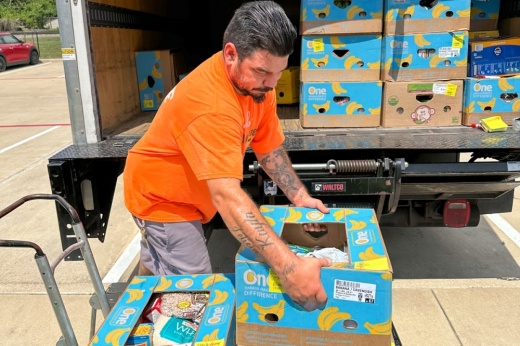Donations for this latest effort, which began June 1, will be accepted until June 30 with a goal to collect 3,000 pounds of nonperishable food for the Bastrop County Emergency Food Pantry.
That weight equates to 2,500 meals, according to BCEFP.
“This food drive is a powerful example of how our community comes together to support our neighbors,” Tresha Silva, executive director of BCEFP, said in a news release. “Every single donation helps put food on the table for a family in Bastrop County.”
What residents should know
Desired items include canned products, such as soup, chili, meat, tomatoes, green beans and ravioli, as well as dried fruit, packaged nuts, pasta sauce, crackers, peanut butter and plastic bottles of jelly.
There are four drop-off locations:
- Bastrop City Hall at 1311 Chestnut St., Bastrop
- Bastrop Police Department at 104 Grady Tuck Lane, Bastrop
- Bastrop Public Library at 1100 Church St., Bastrop
- Bastrop Recreation Center at 1008 Water St., Bastrop
The inspiration
BCEFP—a nonprofit organization that has served residents since 1987 and that broke ground on a new $7.5 million facility in mid-February—recently cited an increase in demand for services in the midst of inflation.
Reduced federal assistance through the U.S. Department of Agriculture also has affected operations, as the Central Texas Food Bank, which previously supplied up to 45% of the food on the shelves at BCEFP, lost $5.5 million in funding. The impact is approximately 761,000 fewer meals being delivered to the Central Texas Food Bank, according to Central Texas Food Bank officials.
“This year is the third year in a row of high levels of need,” Kelly Manfredini, director of marketing and communications for BCEFP, told Community Impact in an email June 19. “If more social safety net programs are cut, we anticipate that our numbers will rise even further. For the last few months, we have been distributing 40,000-plus pounds of food through our various programs.”
BCEFP provided 5,460 individuals with 487,932 pounds of food in 2024 and 5,609 individuals with 446,859 pounds of food in 2023, according to annual report documents from BCEFP.




